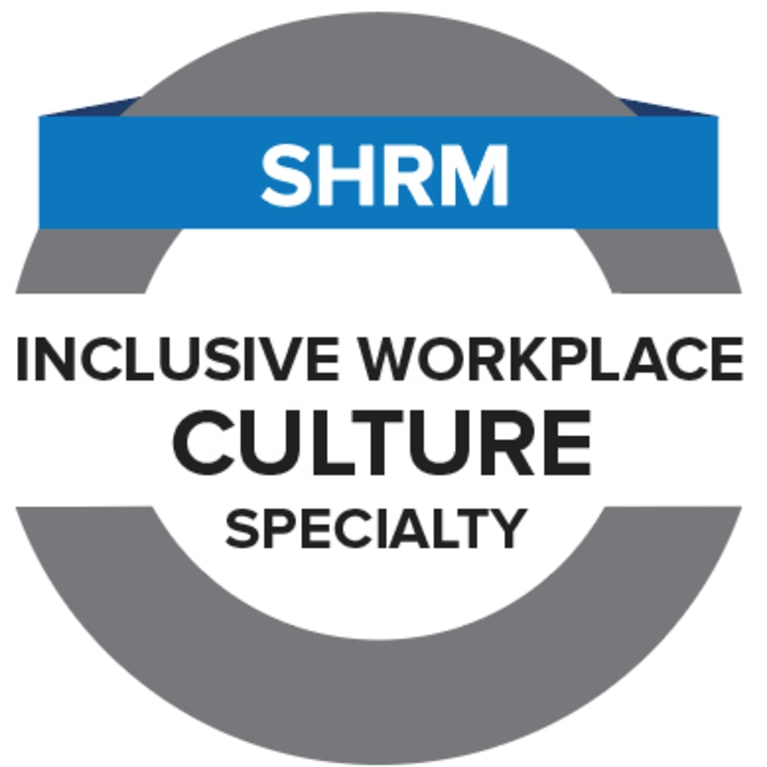SHRM Launches Specialty Credential on Workplace Culture
SHRM-CPs and SHRM-SCPs who complete this program will earn 22 PDCs toward recertification

A new professional development program, the SHRM Inclusive Workplace Culture Specialty Credential, gives HR professionals the strategies and tools needed to successfully shift organizational culture away from toxicity and divisiveness and toward engagement and inclusion. Those who earn this credential are taking part in an effort to reinforce positive change and forward thinking in the employment environment. Culture is a critical business asset and one of the greatest benefits an employer can provide, especially in today's tight labor market.
"The level of toxicity in the workplace is at an all-time high," said Johnny C. Taylor, Jr., SHRM-SCP, SHRM president and CEO. "A company might be great, but if the manager treats people unfairly or is not skilled at dealing with peer-to-peer issues, then engagement suffers. The end result is that people will look for a new job." Nearly half of all Americans have considered quitting their jobs in such situations, according to the 2019 SHRM survey report The High Cost of a Toxic Workplace Culture. "Leadership training can thus no longer be thought of as a luxury," Taylor said. "It's a necessity."
As a form of leadership training, the SHRM Inclusive Workplace Culture Specialty Credential is an innovative response that can help HR professionals—and the organizations and employees they serve—thrive.
Program Requirements
To earn the SHRM Inclusive Workplace Culture Specialty Credential, participants must purchase and complete a package that includes:
- Enrollment in the SHRM seminar "Inclusive Workplace Culture: Leading and Sustaining a Culture Transformation," available in person or virtually.
- Participation in three comprehensive SHRM e-learning courses: "Measuring Success of an Inclusive Workplace Culture," "Introducing Allyship to Foster an Inclusive Workplace Culture" and "Cultivating Support for an Inclusive Workplace Culture."
- Passing a 50-question online knowledge assessment. After passing the assessment, participants will receive a certificate of accomplishment and a digital badge verifying their specialty.
SHRM certification is not required to be eligible for the specialty credential. SHRM-certified participants who complete the program, however, will have 22 professional development credits (PDCs) toward recertification of their credential automatically uploaded to their SHRM certification portal.
A SHRM specialty credential is valid for three years from the date of completion. It cannot be renewed but can only be reissued following completion of the updated specialty credential learning program appropriate to it.
For more information, visit the SHRM specialty credential page, or contact Jeanne Morris, SHRM vice president for education.
An organization run by AI is not a futuristic concept. Such technology is already a part of many workplaces and will continue to shape the labor market and HR. Here's how employers and employees can successfully manage generative AI and other AI-powered systems.



